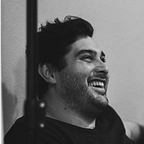On American Goodness: Love, Hard Work and a Sense of Togetherness.
American families dance together in an unspoken national choreography.
Are Americans good?
It’s a simple question, and I’d bet only a decade or so ago, the popular answer would be an obvious and emphatic, “yes.”
But given the deluge of national pessimism and political hysteria to which our country has been subjected in recent years, one could be forgiven for taking a second to ponder it. Indeed, for some, temptation to lean away from the affirmative answer is likely at an all-time high. Today, polling tells us that America is the most politically divided it’s ever been, while we remain divided by race and class and seem to lose faith in our institutions, our leaders and each other more and more every year.
Those are sobering statistics, to be sure, and it’s easy to understand why some may take stock of them and consider that, perhaps, Americans have given up the belief that we are good; that, after 9/11, the Great Recession and years of political upheaval, our country became so poisoned with fear by a mix of paranoia, greed, partisanship and anger that we divorced ourself from the idea of collective goodness.
One doesn’t need to search long and hard to find examples of this kind of dark cynicism in American society today. It’s a doubtfulness that’s more common and pervasive than ever before.
But it’s wrong.
Americans are good, and our goodness is rooted in our values. We are good because when the floodwaters rose and left Houstonians stranded in their own homes without food, water or reliable shelter, their neighbors bound together, fired up — or simply paddled — their small boats and sailed down highways to rescue men, women and children of all ages, any gender and every race.
We are good because for the past two weeks, my social media feeds have been dominated with everyday people seeking advice on which disaster relief charities are most trustworthy, so they can have the peace of mind that their donations of clothing, food and money will have a maximized impact for their suffering fellow Americans.
We are good because the vast majority of us watched the situation that unfolded weeks ago in Charlottesville, VA with an attitude of disgust, horror and confusion; our collective confusion is among the best evidence for our collective goodness. How could this happen here? Who are these angry, awful people? How could anyone justify using violence to make a political point?
And yet, these actions are merely the effects of American goodness. Their cause is rooted deeply in our values and way of life, which have proven time and time again that they cannot be shaken. Today marks the sixteenth anniversary of the World Trade Center attacks, the barbaric and still-unfathomable assault on our country and values that took the lives of 3,000 innocent people and injured 6,000 more. It was an attack with an immeasurable radius of lasting pain; one that reverberates in the American memory with nearly as much volume, horror and disbelief as it did on September 12th, 2001.
And yet, on 9/12, and the day after that, and the day after that, and so on — despite the anguish and fear left in the attacks’ wake — millions of people woke up, got their kids to school and headed to work, punching the the clock, moving our economy, paying their taxes and putting food on the table for their children every night. It was true sixteen years ago, and it’s just as true today: over the next few months, Americans will watch football, go to soccer games, nag their kids to do homework, plan Halloween parties and gather with family around the Thanksgiving table.
It’s a ritual that happens in El Paso, TX. It happens in Duluth, MN. It happens in Mobile, AL. It happens in Portland, ME; Spokane, WA; Salt Lake City, UT. Every season, all over the country, American families dance together in an unspoken national choreography; a chorus line of family and community traditions into which we are born. We move rhythmically, harmoniously together, in communities in every state, from coast to coast, decade after decade, year after year, day after day.
In those details — in those rote, unacknowledged rituals of American life and the attendant values that inform them — lies the heart of American goodness. Every day, every season, families all over this country fill homes and communities with love, hard work and a sense of togetherness that buoys our national fortunes and our hopes for the next generation. It’s ritual and a common set of unspoken values that invite the participation of American families of every race, religion, class and creed.
Love, hard work and a sense of togetherness.
It’s why images of political violence on our televisions seem so alien to us. It’s why the 9/11 attacks still loom in our national conscience and memory, and why the murder of three thousand innocent people that day did not break our national spirit. It’s why Houstonians didn’t bat an eye when their neighbors called upon them, and it’s why donated goods and charity are flowing freely to the hurricane-stricken areas of the American South.
Yes, Americans are good, and our goodness is embedded deeply within our values. Our goodness is why, as a people — in Houston and Florida today, in Charlottesville, VA a month ago, in Manhattan sixteen years ago — we lean on and love each other, and must strive to never fall prey to the darker impulses of our times.
No matter how dark our times may get.
